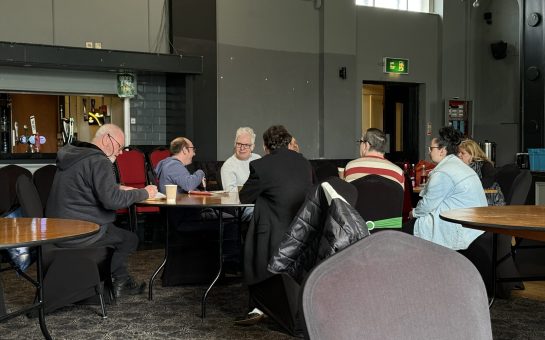In 1987 Dr Sylvia Sham arrived in Manchester from Hong Kong without being able to speak any English and with so little money that she had to walk four hours a day to and from college.
Sylvia survived on the bare essentials after coming to the UK to study child care.
Twenty five years later and Sylvia is now the CEO of Wai Yin Chinese Women Society and works tirelessly with her 40 staff and over 300 volunteers to help those who have to help those who have difficulty overcoming the obstacles of settling into a different culture.
“There is a language issue. The English level is very limited. If they can’t read and write people don’t know their entitlement,” she said.
For immigrants the common difficulties of tourism such as the language barrier and cultural jarring morph into a problem which must be dealt with on a daily basis in order to survive.
“If you come from another country you are thinking about your family – if you are working in a Chinese takeaway you just say ‘number 24 spare ribs’ and ‘number five chicken-fried rice’,” she said.
“You have no idea what is going on outside your restaurant and it’s very difficult to integrate, but you have to work to keep your family alive.
“They are isolating themselves, but they have no choice. They work very unsociable hours, some work for six days every week. Some even work seven days, just to make sure their family has food to put on the table and a roof over their heads.”
She also emphasised that, although the society provides services mainly for the Chinese population, anyone is welcome.
She said: “We have four community centres in Manchester, open for all ethnic minority groups. We believe if anyone comes through the door we should have a service for them, not just Chinese, not just women. The staff and volunteers are multi-lingual and multi-skilled.”
When Sylvia arrived in Manchester – a city that had been recommended to her because of its large Chinese community – she had to scrape by on the bare necessities.
“I spent £5 for chicken every month but it’s alright, I’ve enjoyed my life.”
When Sylvia joined Wai Yin as Project Manager in 1998, the society – by then 10 years old – had only one year left of funding and just three staff, a situation which she and the board of trustees immediately set about improving – they now have 40 full and part-time staff.
Her aim is to see the Chinese community fulfil its potential with the opportunities that are on offer in Britain, or, as she says, to ‘help those who are willing to help themselves’.
“There are immigrants who’ve been here 40, 50 years and they can’t speak English,” she said.
“If they’re working [in a restaurant], they don’t have access to the welfare of this country, they are not developing skills or improving their English.”
But the society is not just about teaching people English.
“Wai Yin is about a wider platform. Our education is not about learning how to say ‘I need to go to the toilet’. They should be learning how to open a bank account, how to build a post office, what is an education, what a parent-teacher evening is about, so we do this in a well equated way to engage them in a proper citizenship course.
“What we want is for them to feel confident and this way they will be more able to learn and progress their lives.”
Despite the time and focus devoted to the vocational aspects of life, Wai Yin also provides a valuable community service.
As the recession drags on a growing number of English-based Chinese young people are heading back to Hong Kong and China to find work, leaving behind parents who are often unable to speak English and find themselves with limited social options.
“We got two coaches and took them, not just Chinese people, to see the countryside,” she said.
“They’d never been! It’s not just about learning, but about social interaction, allowing them to feel confident in a safe environment.”
However, while they are involved in plenty of projects with more on the horizon, Sylvia believes the government could do more to aid societies such as Wai Yin as funding becomes increasingly stretched.
“Once they [the government] decided to let them stay in this country, they should have some sort of tuition to help people progress their lives.”
Regardless, she is happy in her work and will not be slowing down anytime soon.
“I’m really fortunate; I’m in a job that I love,” she said. “I’m in a position to take what I have learned in this country and give it back to my community.
“It’s my passion that people should not lose their culture, but have a better chance at getting the job they want and becoming part of this society in which they have chosen to live.”
Image courtesy of Vintage Lulu, with thanks
For more on this story and many others, follow Mancunian Matters on Twitter and Facebook.



